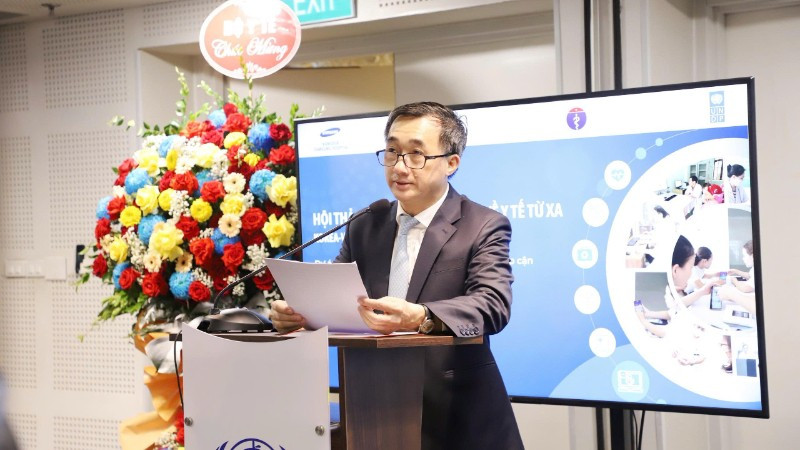
On the morning of June 26, the Vietnamese Ministry of Health organized a Vietnam-Korea workshop on telemedicine. This program is part of the project "Application of telemedicine to increase access to health services for vulnerable groups in Vietnam".
Promoting the implementation of telemedicine, eliminating the medical gap between regions
Professor, Dr. Tran Van Thuan, Deputy Minister of Health, said that telemedicine is one of the most specific and clear manifestations of modern medicine - where technology is applied to serve people, ensure fairness and expand access to health care to all regions.
Since 2020, in the context of the complicated developments of the Covid-19 pandemic, the Ministry of Health has urgently implemented the Remote Medical Examination and Treatment Project with over 1,000 connection points nationwide, contributing to saving the lives of thousands of patients, including foreigners. Currently, this model continues to be maintained and expanded, serving tens of thousands of patients each year, especially in disadvantaged localities.
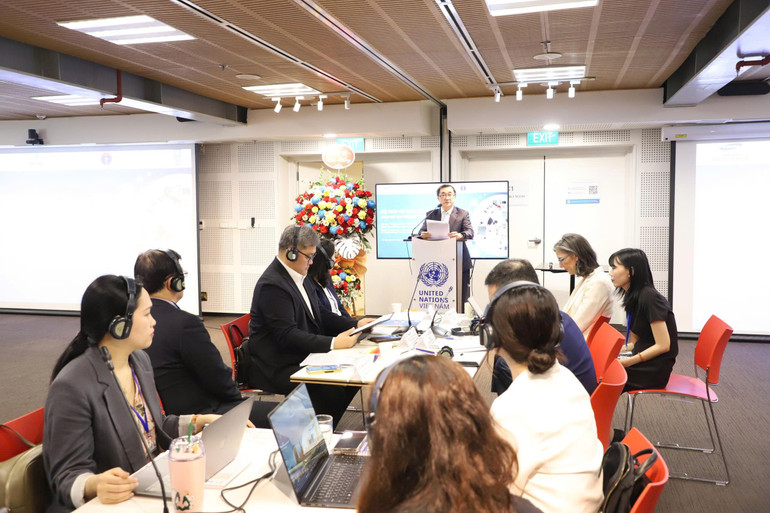
Along with practical implementation, the Ministry of Health has also proactively completed the legal framework to ensure that telemedicine develops in the right direction and sustainably. From the 2023 revised Law on Medical Examination and Treatment to Decree 96/2023/ND-CP and Circular 30/2023/TT-BYT, along with many guiding documents, a relatively complete legal foundation has been formed for this activity.
In particular, since 2020, with the support of UNDP, the remote medical consultation and treatment model using the software "Doctor for every family" has been effectively deployed in 8 provinces.
According to Dr. Nguyen Thanh Ha, representative of UNDP, there are 3 stages of developing and implementing the Doctor for Every Family system.
In the first phase, the project initiated and piloted on a small scale in 3 districts of 3 mountainous provinces ( Ha Giang , Bac Kan and Lang Son). In the second phase, the project upgraded software and hardware, and expanded the implementation in 5 provinces affected by climate change (Hue city, Quang Ngai, Binh Dinh, Dak Lak and Ca Mau provinces).
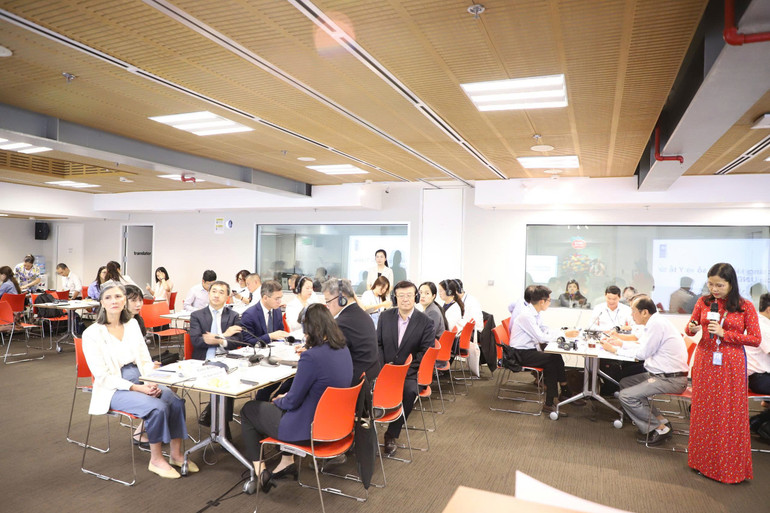
In phase 3, the project continues to comprehensively upgrade the system (information technology infrastructure, strengthening human resource capacity and developing legal documents) and expand to 6 new provinces and 4 old provinces focusing on vulnerable areas (Ha Giang, Bac Kan, Lang Son, Lao Cai, Lai Chau, Yen Bai, Tay Ninh, Hau Giang, Ben Tre and Ca Mau). To date, the project supports 14 provinces during 2024-2026.
In this project, the online system allows connection and use of applications on the website platform on computers and applications on smartphones; connects and allows exchange and interaction between medical staff and between medical staff and patients; stores data on servers located at the Data Center of the National Health Information Center and 5 Departments of Health.
Following that success, the Ministry of Health coordinated with KOFIH and UNDP to implement the Telemedicine Project in 10 mountainous, remote and isolated provinces - where access to health services is still difficult (Ha Giang, Bac Kan, Lang Son, Lao Cai, Lai Chau, Yen Bai, Tay Ninh, Hau Giang, Ben Tre and Ca Mau).
Deployed from December 1, 2023 to November 30, 2026, the project is a practical and humane international cooperation model, contributing to the realization of the policy of "leaving no one behind" in health care.
The project focuses on three contents: Developing and disseminating documents, standard procedures, and technical guidelines related to the implementation and implementation of remote medical examination and treatment; improving the capacity of the health system to provide good quality remote medical examination and treatment services at the grassroots level, including information technology infrastructure (hardware and software) and the capacity of health workers; providing and promoting the use of remote medical examination and treatment services at the grassroots level for people, including vulnerable groups and patients with hypertension and tuberculosis.
Ensuring sustainability for the project "Doctor for every home"
Speaking at the workshop, Mr. Cheon Joo Hwan, Director of KOFIH, affirmed that telemedicine is not only a technical solution but also an important means to promote health equity. This project not only provides technical support but also integrates information technology into health services, contributing to narrowing the access gap between population groups.
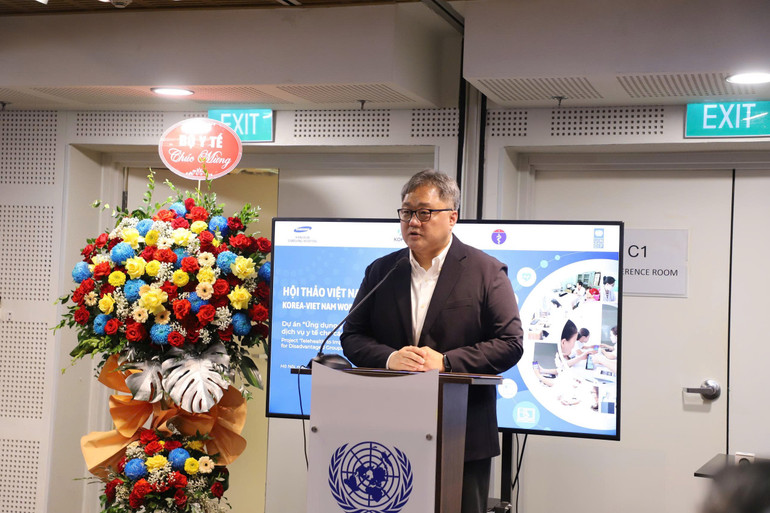
KOFIH representative said that Samsung Kangbuk Hospital has participated in the project from the beginning, from field survey to technical training, providing valuable experience from the Korean healthcare system.
He emphasized that this workshop is an opportunity for Vietnam and Korea to share practices and discuss sustainable policy and financial models for telemedicine.
Dr. Nguyen Thanh Ha said that the telemedicine project supported by KOFIH and UNDP in Vietnam is also facing many challenges when the guidelines related to policies on telemedicine are not complete; there is a lack of integration and sharing of data with existing medical information at health stations; there is a lack of specialized information technology equipment for telemedicine at grassroots health facilities....
In the face of the fact that some localities have merged, the project implementation area has expanded, while the project's resources are limited, UNDP will coordinate with the Department of Medical Examination and Treatment Management, Ministry of Health and 10 Departments of Health of 10 old localities to adjust resources.
To ensure sustainability and replication of the Project's results, Deputy Minister Tran Van Thuan requested the Department of Medical Examination and Treatment Management to preside over and closely coordinate with the Department of Science, Technology and Training, the Department of Planning and Finance, the Department of Health Insurance, the National Health Information Center and 10 local Departments of Health to continue to successfully complete the set goals.
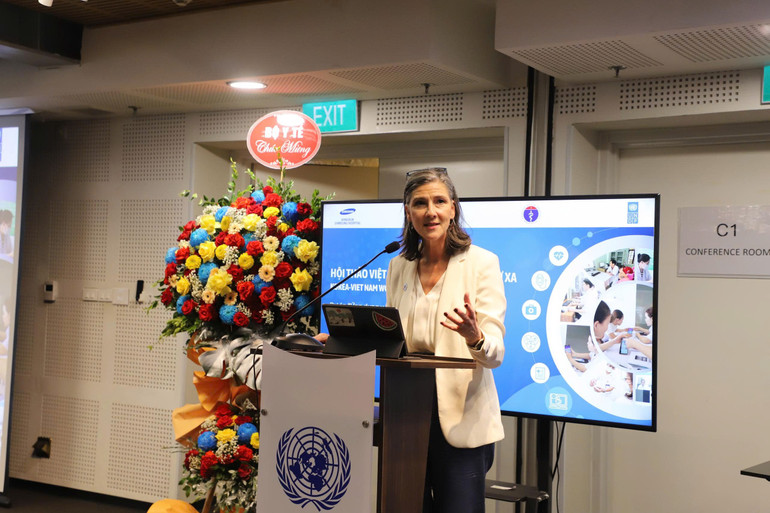
At the same time, summarize practices, propose amendments and improvements to policies, techniques and financial mechanisms so that the telemedicine model can be sustainably integrated into the regular healthcare system.
Ms. Ramla Khalidi, UNDP Resident Representative in Vietnam, affirmed that she will continue to accompany the Ministry of Health and partners to ensure that all people, especially vulnerable groups, can access quality, equitable and comprehensive health services.
Source: https://nhandan.vn/hieu-qua-du-an-y-te-tu-xa-tai-cac-tinh-mien-nui-vung-sau-vung-xa-post889586.html






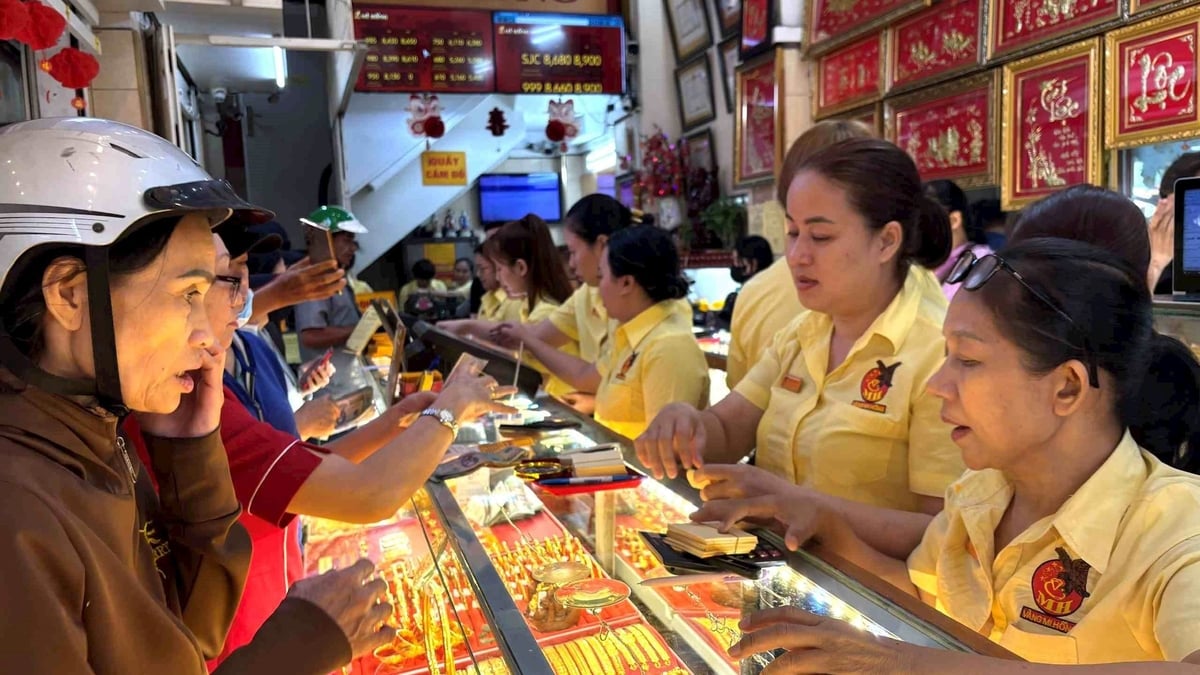

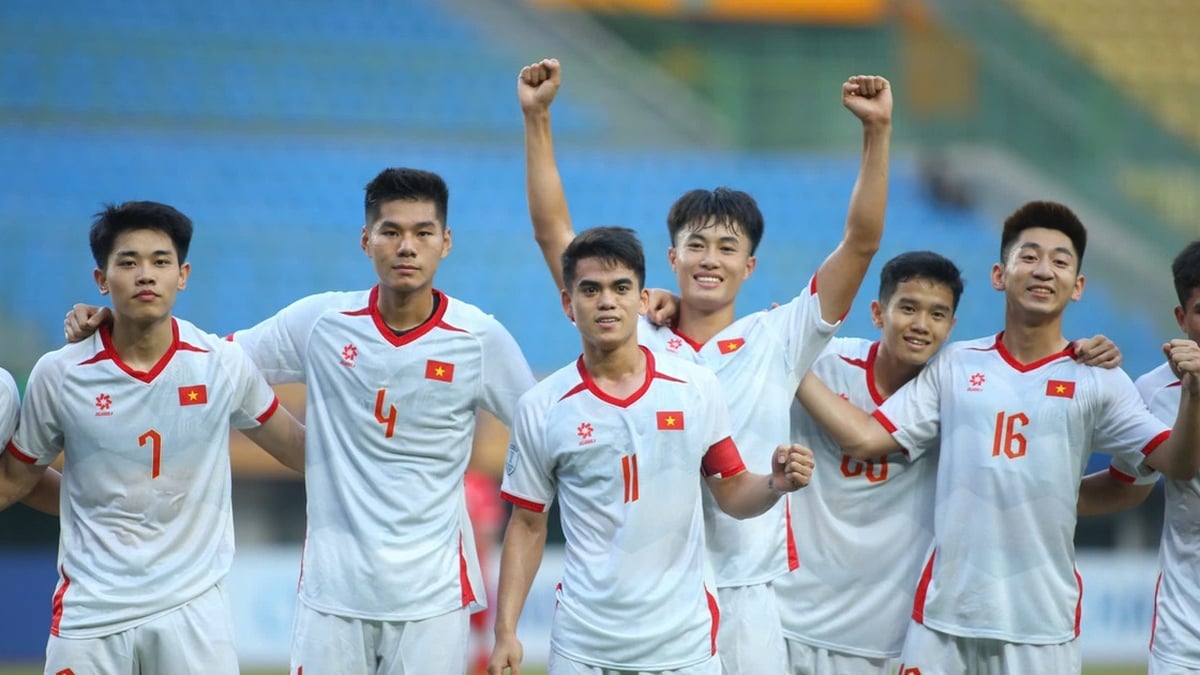
















![[Photo] National Assembly Chairman attends the seminar "Building and operating an international financial center and recommendations for Vietnam"](https://vphoto.vietnam.vn/thumb/1200x675/vietnam/resource/IMAGE/2025/7/28/76393436936e457db31ec84433289f72)










































































Comment (0)